The first time, Qatar
The 2022 FIFA World Cup was played in Qatar.
It was the first time that the Qatari national team participated in the World Cup. It was the first time that the competition has been hosted in a Gulf country, in a Muslim nation.
“The First Time, Qatar” it’s a story about Qatari many contradictions and about how the least likely World Cup in football history came to be. It’s part of a long-term project by photographer Matteo de Mayda and writer Cosimo Bizzarri.
Text continue below the images
It was the first time that the Qatari national team participated in the World Cup. It was the first time that the competition has been hosted in a Gulf country, in a Muslim nation.
“The First Time, Qatar” it’s a story about Qatari many contradictions and about how the least likely World Cup in football history came to be. It’s part of a long-term project by photographer Matteo de Mayda and writer Cosimo Bizzarri.
Text continue below the images
PUBLICATIONS
The Financial Times Weekend Magazine (UK)
Rivista Undici (ITA)
Libération (FRA)
FOCUS Magazin (GER)
Aftenposten Innsikt (NOR)
L'Obs (FRA)
Sportweek (ITA)
T - Le magazine du Temps (SWI)
Les Echos Week-End (FRA)
Reporters Without Borders (GER)
SHUKYU Magazine (JAP)
So Foot (FRA)
Internazionale (ITA)
6Mois (FRA)
The Financial Times Weekend Magazine (UK)
Rivista Undici (ITA)
Libération (FRA)
FOCUS Magazin (GER)
Aftenposten Innsikt (NOR)
L'Obs (FRA)
Sportweek (ITA)
T - Le magazine du Temps (SWI)
Les Echos Week-End (FRA)
Reporters Without Borders (GER)
SHUKYU Magazine (JAP)
So Foot (FRA)
Internazionale (ITA)
6Mois (FRA)


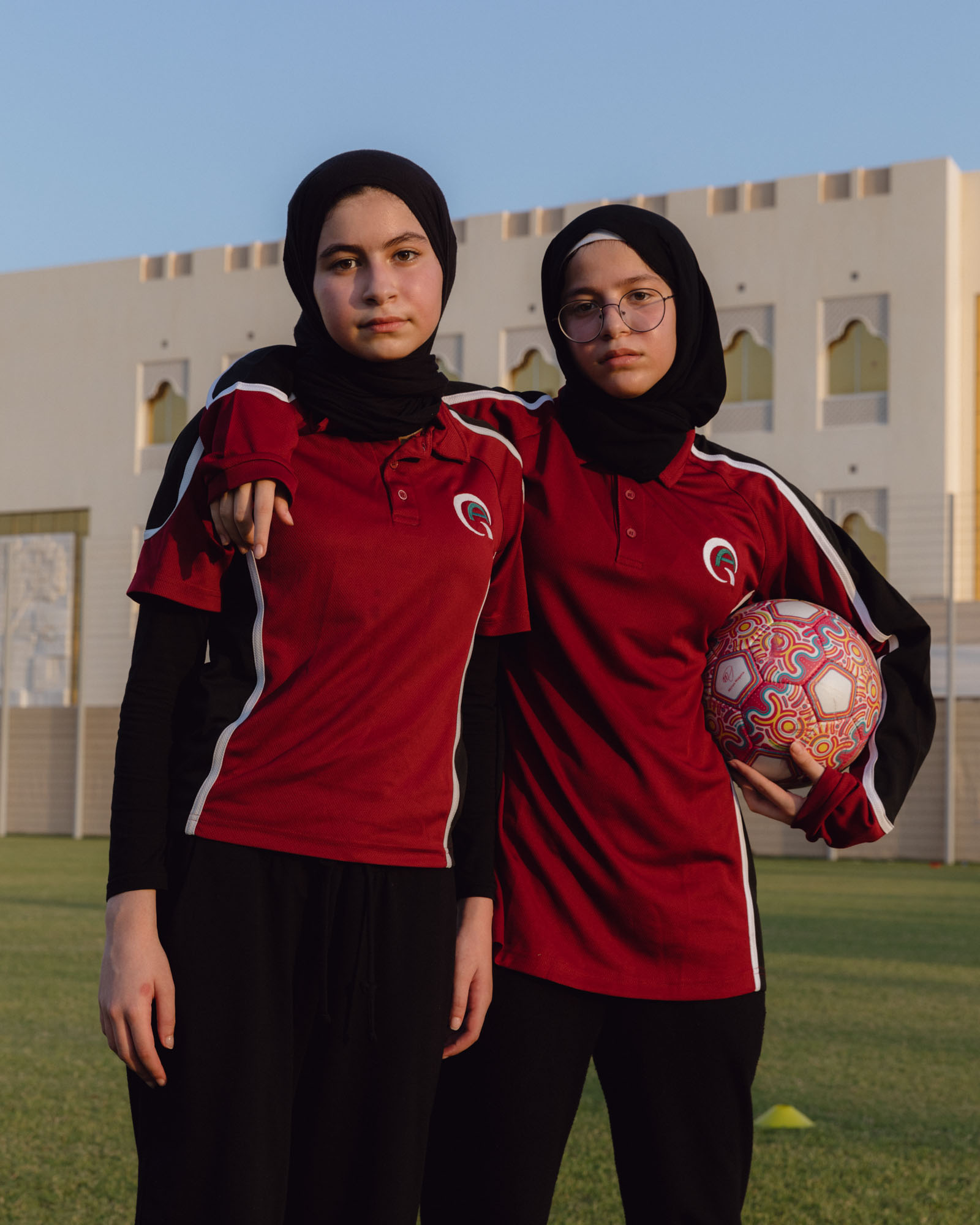
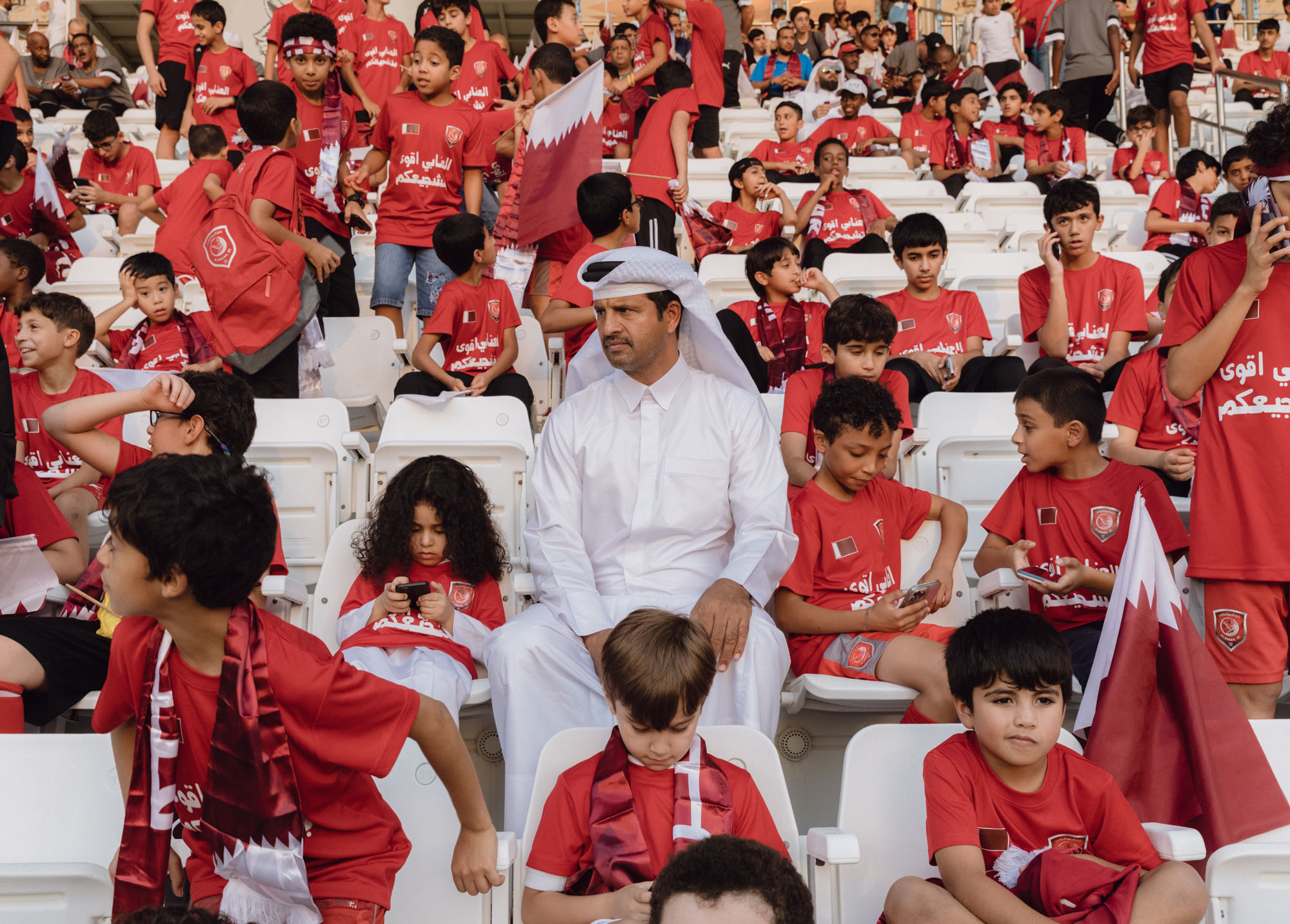


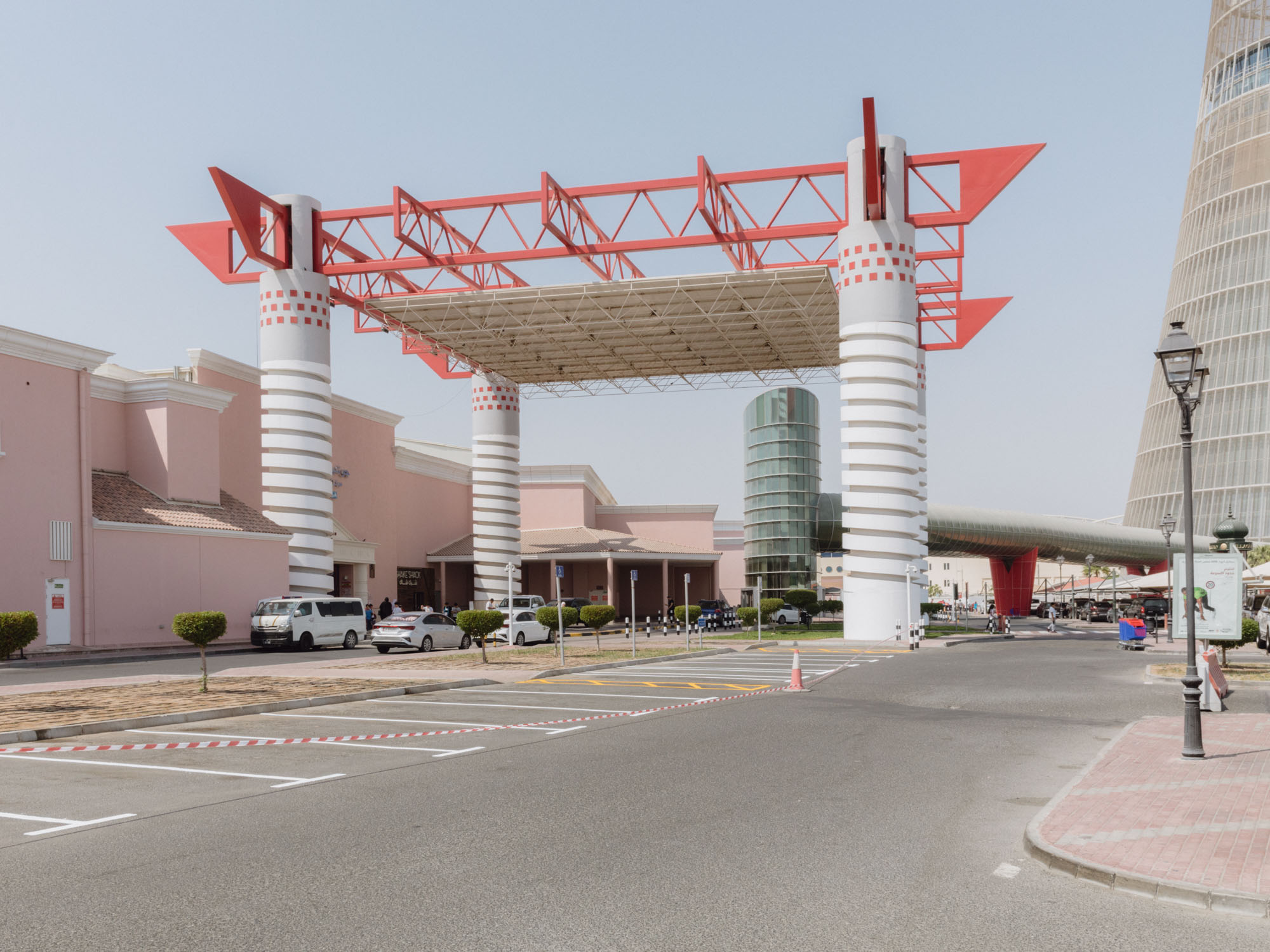


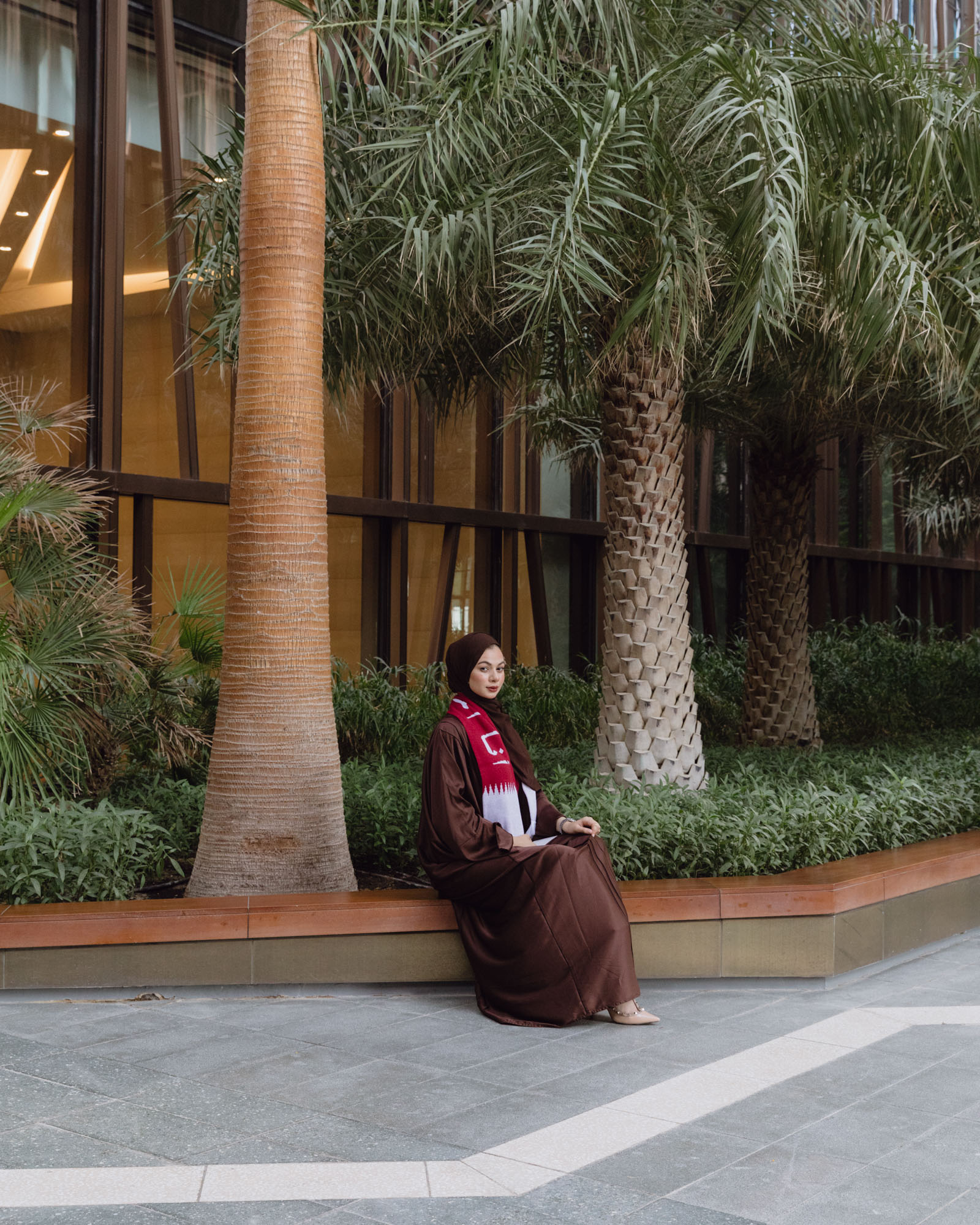

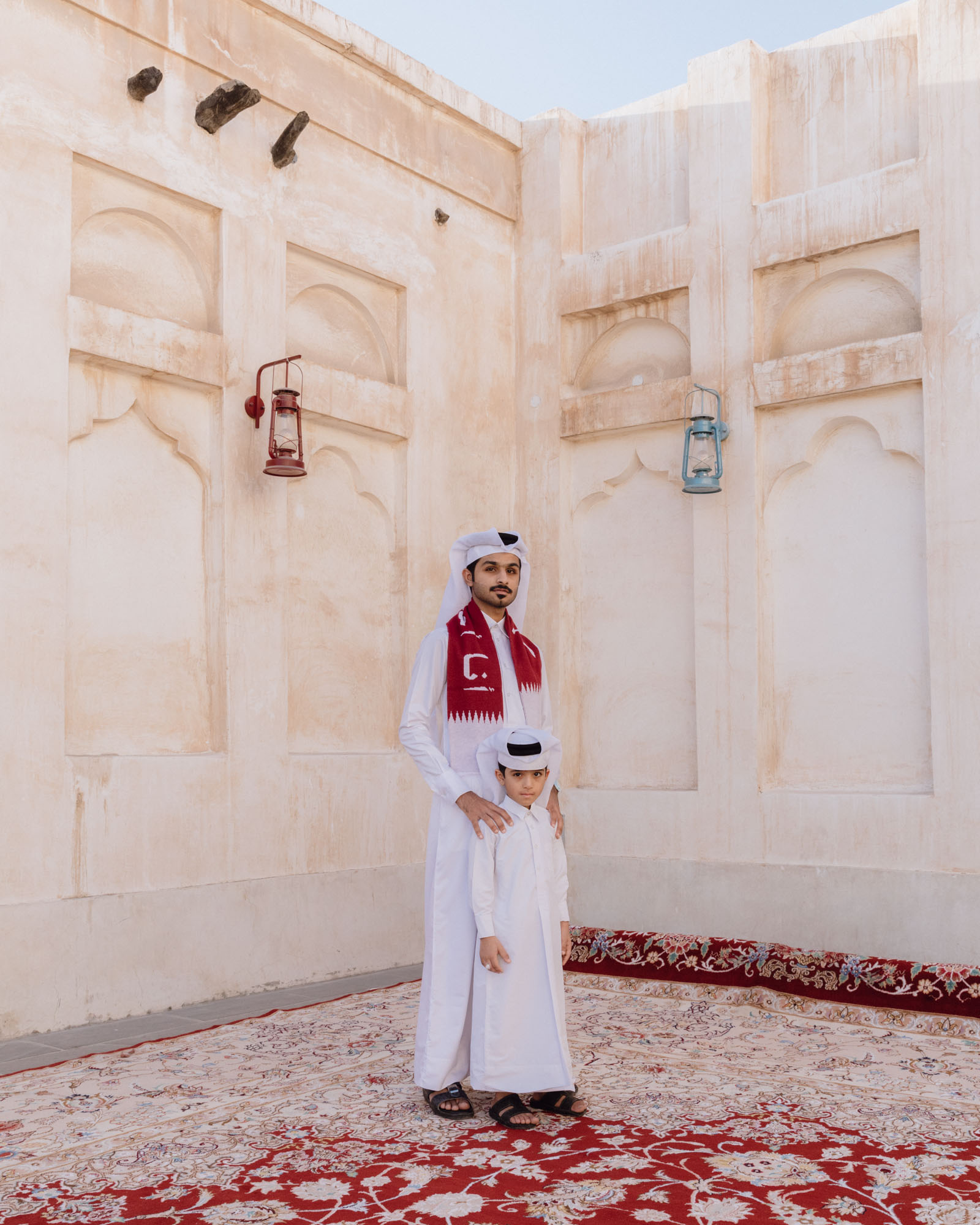


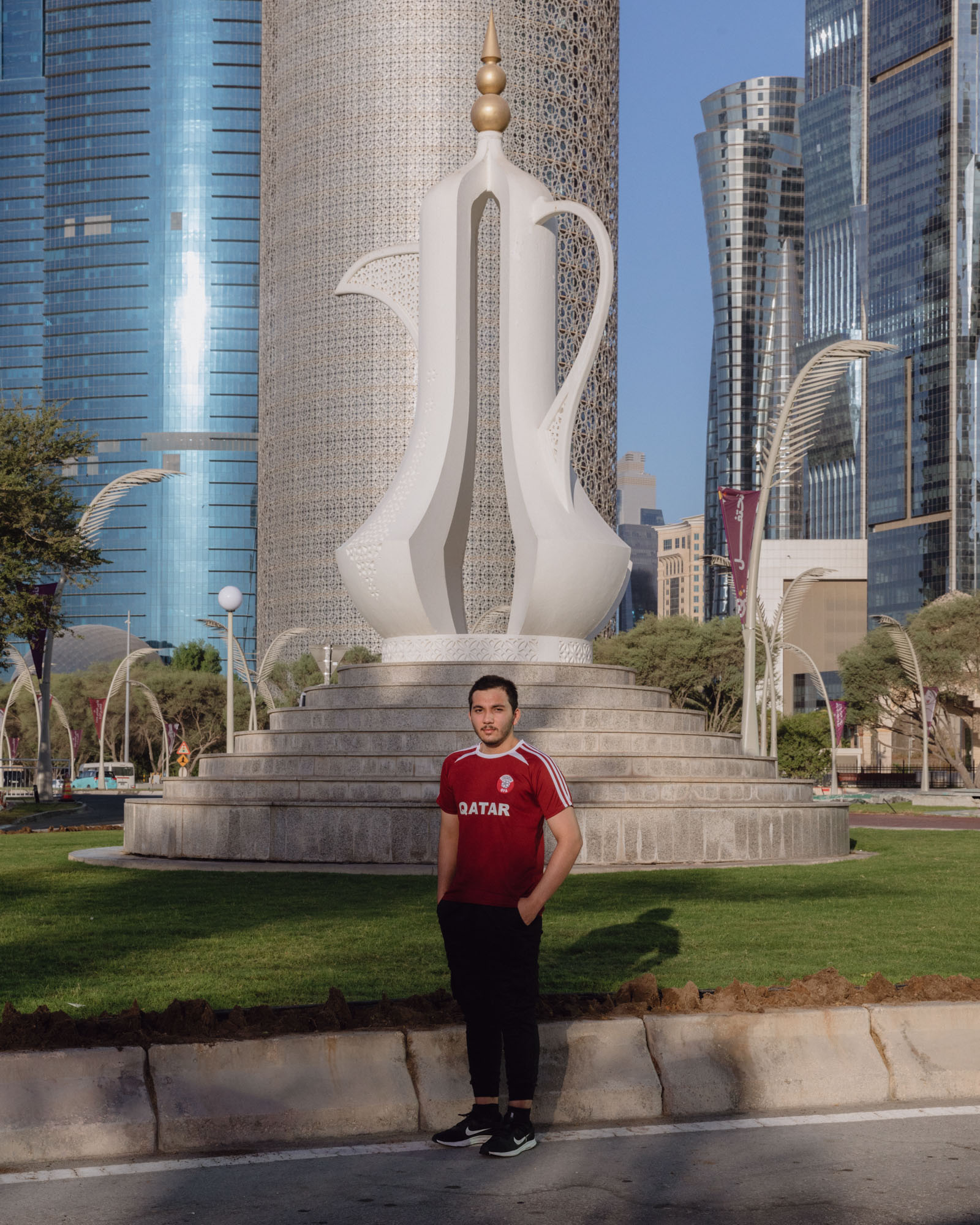
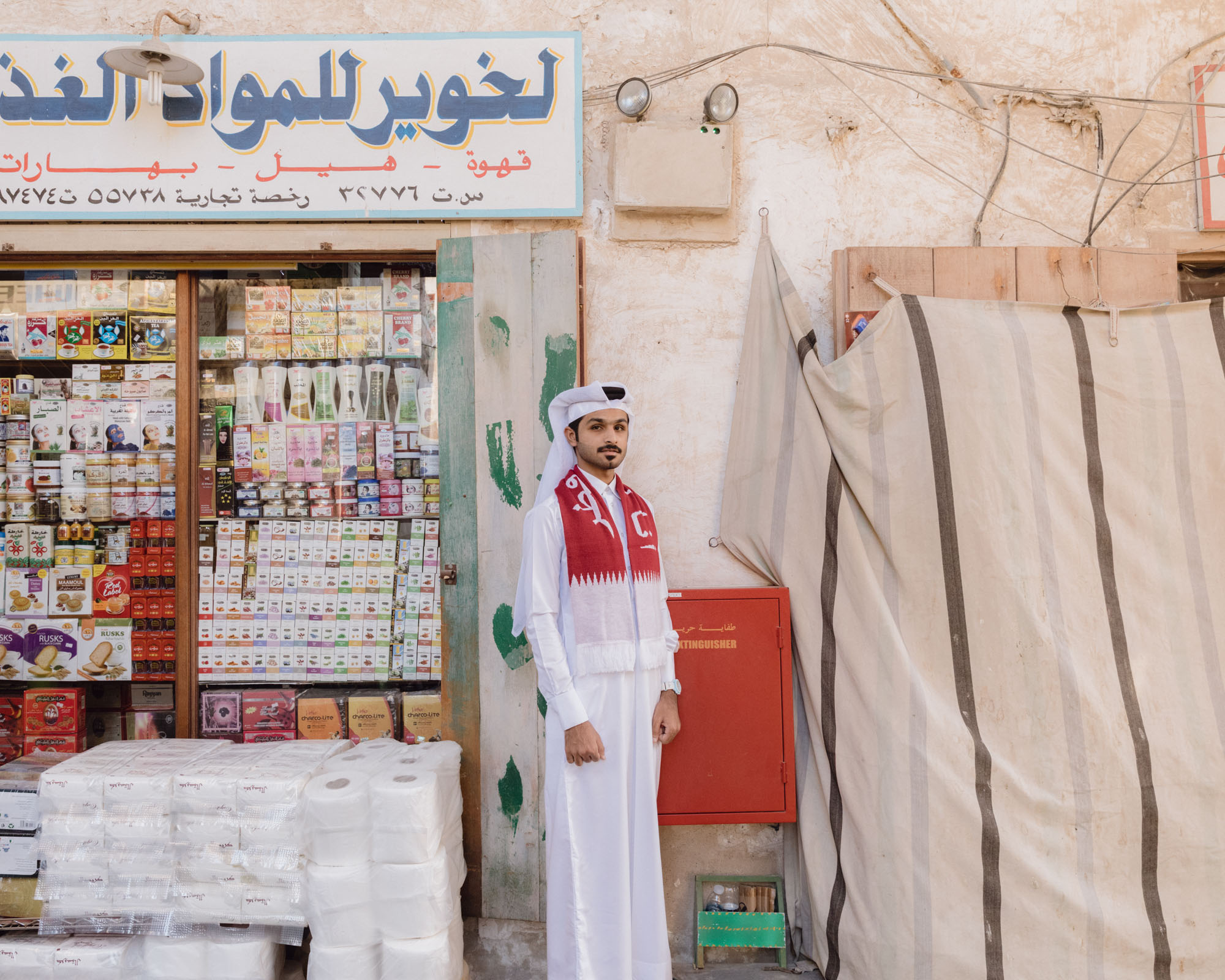

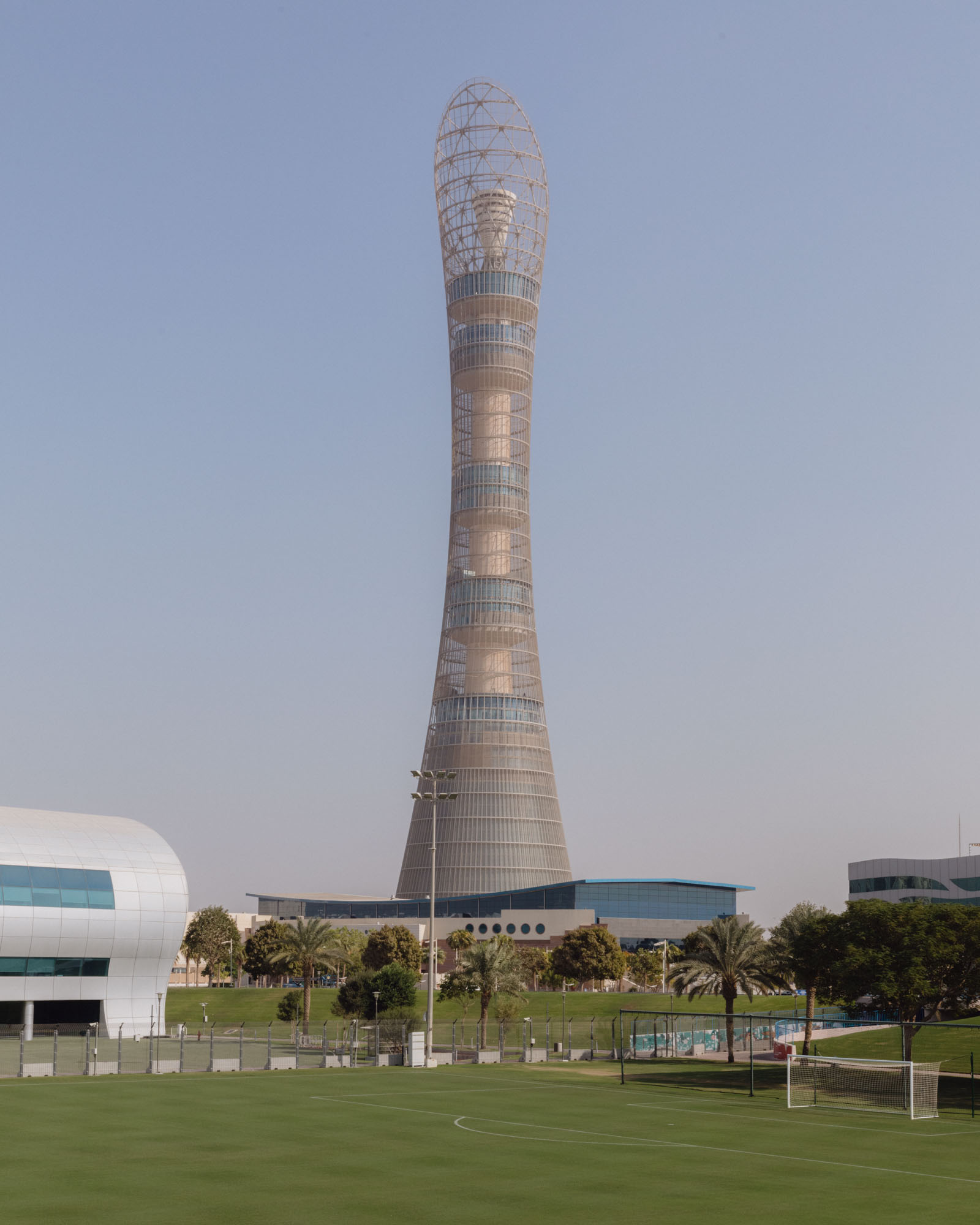
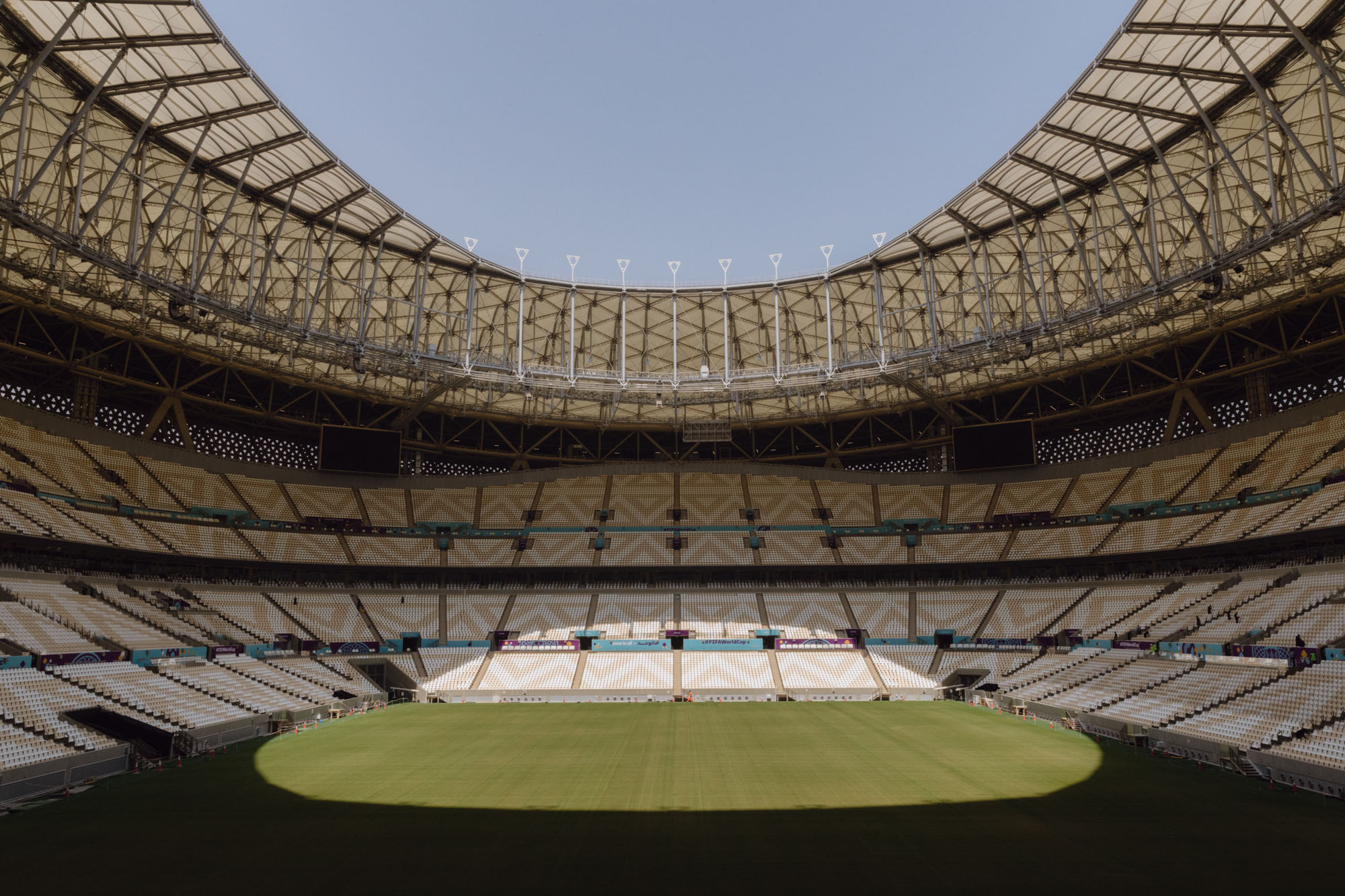
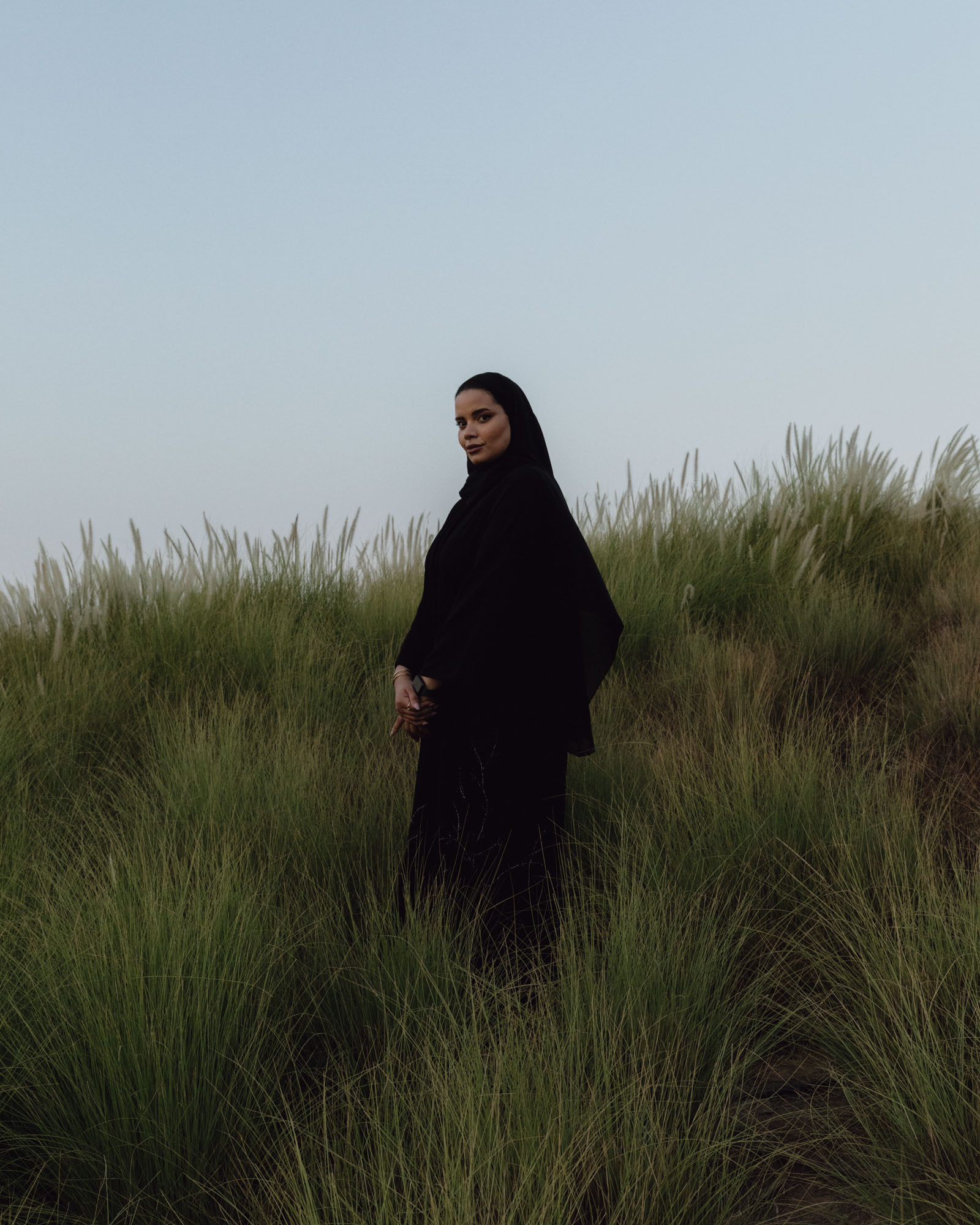
The reportage explores Qatar’s many contradictions. First of all, it’ll focus on the visual contrast between a largely deserted landscape and the monumental contemporary architecture that characterises Doha and the other cities. Some of the most futuristic buildings are the stadiums that the government rushed to build, exploiting thousands of migrant workers from India, Pakistan, Nepal, Bangladesh and Sri Lanka.
Preparing to host a World Cup also means putting together a competitive national team, not an easy task for a 3 million people country wit little tradition in the sport. Until recently, Qatar pursued the strategy of naturalising foreign-born players: in a 2015 friendly against Algeria, si of the eleven players in the starting team were foreigners.
A recruitment and training program for boys, the Aspire Academy was founded in Doha in 2004 to create the future national team. Today, three of the strongest members of the national team were raised inside the academy, which on the other hand has been accused of exploiting young players, especially those coming from poorer countries.
Girls fare much worse. While the government formally encourages female footballers to take on football, society still considers it an inappropriate sport for them. Many female footballers resort to playing for university teams, a way to follow their passion without getting into conflict with their families.
Already one of the hottest places on Earth, Qatar has seen average temperatures rise more than 2 degrees Celsius above preindustrial times and the decision to delay the World Cup by five months is a symptom of a larger problem — the climate change. Saud Abdulaziz Abdul Ghani, nicknamed “Dr Cool”, worked for 13 years on the solar-powered cooling system that will keep the players and turf healthy and even eliminate body odour in a packed stadium.
Football is not only a sport. Analysts say it’s one of the sectors in which the Al Thani royal family is investing, to prepare for the day in which its huge reserves of fossil fuels - which currently make Qatar the fourth richest country in the world per capita - will eventually run out. The mastermind behind this idea is Jassim bin Hamad Al Thani, brother of the current emir, who is said to have installed a wall of televisions in front of his bed to watch football matches 24/7.
The First Time - Qatar investigates all these issues, through a series of pictures of stadiums, academies, football pitches and facilities, as well as interviews and portraits with male and female players, coaches of youth and senior teams, fans, members of the federation, and people involved each in its own way in the run-up to a sports event that will change this small nation forever.
Preparing to host a World Cup also means putting together a competitive national team, not an easy task for a 3 million people country wit little tradition in the sport. Until recently, Qatar pursued the strategy of naturalising foreign-born players: in a 2015 friendly against Algeria, si of the eleven players in the starting team were foreigners.
A recruitment and training program for boys, the Aspire Academy was founded in Doha in 2004 to create the future national team. Today, three of the strongest members of the national team were raised inside the academy, which on the other hand has been accused of exploiting young players, especially those coming from poorer countries.
Girls fare much worse. While the government formally encourages female footballers to take on football, society still considers it an inappropriate sport for them. Many female footballers resort to playing for university teams, a way to follow their passion without getting into conflict with their families.
Already one of the hottest places on Earth, Qatar has seen average temperatures rise more than 2 degrees Celsius above preindustrial times and the decision to delay the World Cup by five months is a symptom of a larger problem — the climate change. Saud Abdulaziz Abdul Ghani, nicknamed “Dr Cool”, worked for 13 years on the solar-powered cooling system that will keep the players and turf healthy and even eliminate body odour in a packed stadium.
Football is not only a sport. Analysts say it’s one of the sectors in which the Al Thani royal family is investing, to prepare for the day in which its huge reserves of fossil fuels - which currently make Qatar the fourth richest country in the world per capita - will eventually run out. The mastermind behind this idea is Jassim bin Hamad Al Thani, brother of the current emir, who is said to have installed a wall of televisions in front of his bed to watch football matches 24/7.
The First Time - Qatar investigates all these issues, through a series of pictures of stadiums, academies, football pitches and facilities, as well as interviews and portraits with male and female players, coaches of youth and senior teams, fans, members of the federation, and people involved each in its own way in the run-up to a sports event that will change this small nation forever.